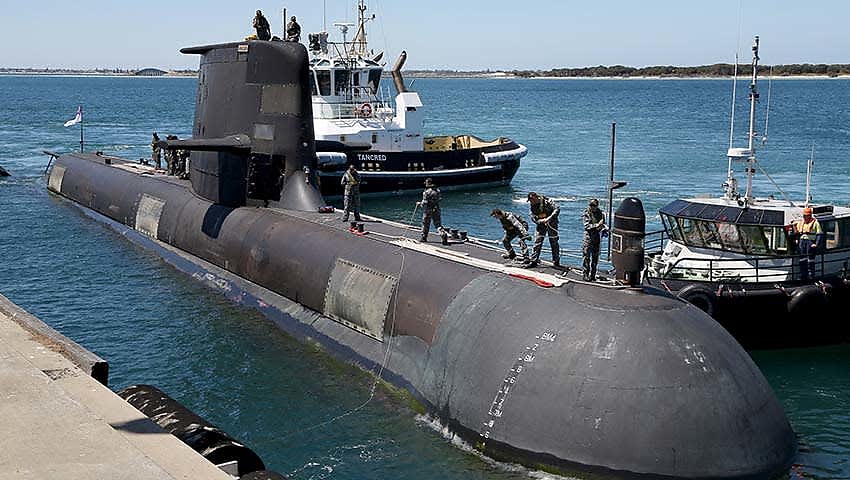The shipbuilding company is revamping its workforce following the government’s decision to indefinitely sustain the Collins Class fleet in Australia.
In addition to announcing its new trilateral nuclear submarines agreement with the United Kingdom and the United States (AUKUS), the Commonwealth government confirmed it would retain full-cycle docking of all six Collins Class submarines at Osborne Shipyard in South Australia.
This follows Defence’s decision in June to invest approximately $6 billion in a life-of-type extension (LOTE) for all six of the Royal Australian Navy’s submarines to avoid a capability gap ahead of the delivery of the next-generation fleet.
ASC, which built the Collins Class submarines alongside Swedish company Kockums (since acquired by Saab), has welcomed the full-cycle docking decision.
The company’s workforce of approximately 1,300 employees is now set to be redeployed to meet new sustainment requirements, with ASC noting new opportunities to transition skilled shipbuilders into new roles.
The LOTE program, due to commence in 2026, is expected to involve updates to key equipment on the submarine, including the propulsion systems, diesel motors, generators, power conversion and distribution systems, along with a range of hull assessments and upgrades.
"Central to the success of the full-cycle docking and life-of-type extension program is the commitment of ASC’s workforce, which includes Australia’s leading submarine platform engineers, trades and professionals,” ASC managing director and CEO Stuart Whiley said.
“Upgrading the Navy’s six Collins Class submarines through the life-of-type extension program and provide Australia with a world-class submarine capability into the 2030s and beyond.
“We are working closely with Defence as well as our supply chains and international partners to deliver on the Royal Australian Navy’s requirements for leading-edge capability.”
ASC also welcomed the AUKUS agreement, stating it would work with the government to support, train, and grow the shipbuilding workforce needed to build Australia’s nuclear-powered submarines.
The company plans to develop a program to retain all of the skilled shipbuilding workers impacted by the scrapping of Naval Group’s Attack Class project.
“ASC is committed to finding roles for skilled shipbuilding workers impacted by this announcement,” ASC chair Bruce Carter said.
“We have implemented a process which will provide all affected employees with the opportunity to transition into positions within ASC or the wider industry.”
The shipbuilder has set up a transition team to facilitate transitions of impacted employees through a three-stage process, expected to include:
- the initial engagement of staff via both ASC’s online ‘Talent Pool’ portal or through dedicated job fairs;
- the completion of a ‘Job Matching’ process, which will assist us to match effected employees to the company’s new work opportunities; and
- the completion of the on-boarding and commencement process.
ASC has pledged to provide participants with access to four different streams of employment and training:
- current and new ASC programs— including to upgrade and improvements to the existing Collins Class submarines;
- Overseas placements with international partners for educational and skills development;
- secondment into other Defence programs such as the Hunter Class frigate, the AWD Combat Systems Upgrade, the Jindalee over the Horizon project, and the Offshore Patrol Vessels program; and
- access to training in digital skills, as part of a new future-focused, ‘Shipbuilding Learning and Development Program.
“ASC are prioritising employees who are due to commence work with Naval Group Australia in the coming weeks and Naval Group Australia and ASC are working together to contact these employees as a priority,” Carter said.
“ASC are looking forward to holding meetings with affected industry employees and providing them a detailed overview of our transition process.”
[Related: Australia goes nuclear – Australia to obtain nuclear submarines as part of new global alliance]









